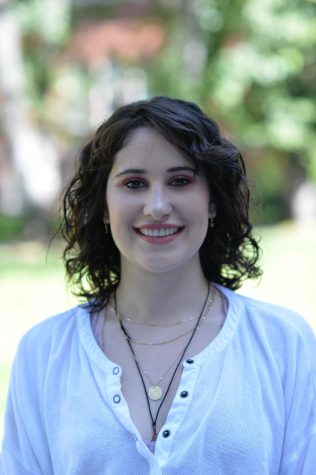City council supports police issuing tickets to COVID-19 partygoers
Pullman Police increase first-offense fine to $250 in addition to required court appearance
Pullman City councilmembers approved thousands of dollars in public works projects during a meeting Tuesday night.
September 15, 2020
Pullman City Council unanimously approved higher penalties for violating public health orders in an attempt to mitigate the recent COVID-19 spike in the city during a virtual meeting Tuesday night.
Pullman Police will now issue tickets to partygoers and increase the first-offense fine to $250 and a required court appearance, with the second violation totaling $500 for the ticketed person.
“We’re going to ask [residents] to be responsible community members,” said Pullman Police Chief Gary Jenkins.
Zone classification
City councilmembers unanimously decided against a proposed zone classification change on a 2.8-acre parcel of land near Military Hill.
The Pullman Planning Commission recommended the council not approve the zone change during its meeting Aug. 26 due to public opposition and lack of traffic study for areas of concern.
“The main issue that has been brought up is traffic,” said Kevin Gardes, Pullman Public Works director.
Several councilmembers expressed their discomfort with the zone change due to increased traffic volume. Councilmember Ann Parks said the area may seem like a good place to increase housing density, but the hill’s location to Pullman High School and Lincoln Middle School would not be safe.
“I’m just not comfortable with the amount of increase in that area,” Parks said. “It looks good on paper, but if you’re driving up that hill on a snowy day in December … it’s dangerous. I just don’t agree.”
The parcel of land will remain an R3 designated zone, which means it has less density than an R4 zone would.
Public projects
The council unanimously approved to set a public hearing about two six-year transportation and public works projects. Public comments will be heard at 7 p.m. Sept. 29 to consider a transit development plan.
The council unanimously approved a six-year capital improvement program for the city, starting in 2021 and ending in 2026.
“Many of these projects are funded by grants. All of the projects that are over $100,000 have grants associated with them,” Gardes said.
Projects would include roof replacements on City Hall, government buildings’ annual ADA improvements, expansion of Pullman City Cemetery and the completion of a veterans memorial site.
Public works improvements would include replacing several pipes and water pumps, as well as removing the car wash structure in the parking lot of Kush21. Clayton Forsmann, deputy public works director, said this area is known to flood quickly and without warning, so removing the structure would help mitigate risk.
“As we know, back in 2019, the flood kind of came out of nowhere,” Forsmann said.
Among several other projects, the city will spend water utility funds on pipe replacements for McKenzie and Jackson streets, as well as on Harold and Effie drives, Grand Avenue and Johnson Road. The city will also purchase and construct a new fluoride storage structure.
The city plans to spend transit funds on new solar lights and improved seating at bus stops, among other approved projects.
CARES Act expenses
The council unanimously approved the recommendations from Mike Urban, Pullman director of finance and administrative services, who said the city should purchase more sanitization.
Urban said the city will get $518,400 more in CARES Act money, and the deadline to spend that money is extended to the end of November. Urban said he recommended the city give an extension to spend the original allotment of federal funds in order to finish current projects while considering others.
One suggested way to spend the new allotment of CARES money is to put about $30,000 of federal money toward hiring a marketing firm to increase downtown tourism. This will not be fully discussed or approved until the next meeting on Sept. 29.
Hailey Lewis, government affairs specialist at Schweitzer Engineering Laboratories, called in to express disapproval at the suggestion, saying the money should be spent on free, widespread COVID-19 testing.
“We are concerned that the use of federal funding to market a COVID hot spot is not necessarily the right use of those funds,” Lewis said. “What better way to market Pullman than getting it back to being a safe community?”










